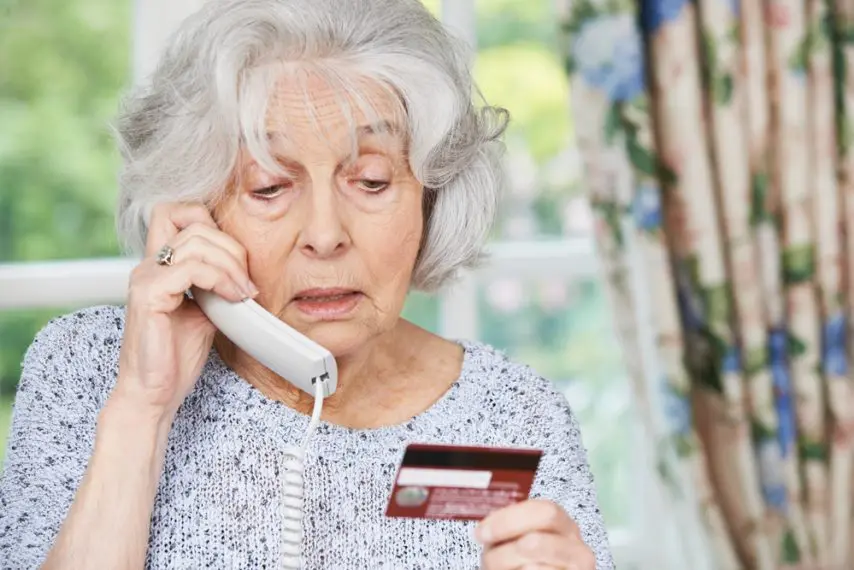 Federal and state officials prosecute telemarketing fraud aggressively. This form of fraud has become pervasive and can have far reaching effects on the elderly and other unwitting victims. Unfortunately, legitimate businesses can easily be caught in the law enforcement’s web because the lines between legitimate businesses and criminal enterprises can be easily blurred.
Federal and state officials prosecute telemarketing fraud aggressively. This form of fraud has become pervasive and can have far reaching effects on the elderly and other unwitting victims. Unfortunately, legitimate businesses can easily be caught in the law enforcement’s web because the lines between legitimate businesses and criminal enterprises can be easily blurred.
Telemarketing fraud is a crime involving an intentional misrepresentation to a consumer about a good or service. These crimes are charged by Florida and Federal prosecutors in conjunction with numerous legitimate industries, to include timeshare sales, investment clubs and other investment opportunities, charities, sweepstakes and contests, and various forms of medical and research studies.
If you have been accused of telemarketing fraud, you need an attorney who is experienced in defending these charges, whether at the state or federal level.
Federal Telemarketing Fraud Attorney
Federal prosecutors pursue these cases aggressively, especially if any alleged victim is an elderly person, defined federally as an individual who is over 55 years old. The penalties are potentially devastating.
In federal court, these charges are typically charged as conspiracies to commit other forms of more generalized fraud such as wire, bank, or mail fraud. If such a scheme is conducted by telemarketing, an additional 5 year sentence may be imposed in addition to the sentence for the underlying crime, whether wire, bank, or mail fraud. If ten or more victims are 55 years old, or if “elderly” individuals are targeted by the scheme, an additional 10 year sentence can be imposed in addition to the sentence for the actual offense. 18 U.S.C. § 2326.
Conspiracy to Commit Telemarketing Fraud
The chances are that if you are charged by federal authorities with telemarketing fraud, you will be charged with a conspiracy. A conspiracy is merely an agreement between two or more people to break the law, along with at least one act to move the agreement forward, otherwise known as an overt act. Since telemarketing companies involve multiple people to conduct the business of the firm, the allegation is almost always that there was an agreement among them to defraud customers. Other companies who provide services to the telemarketing company, such as telephone, internet, computer and database, and other providers and consultants may also be charged in such a conspiracy.
Being charged with a conspiracy in federal court is significant because it allows a participant in the alleged conspiracy to be held responsible not only for his or her conduct, but also for the conduct of other participants. This frequently makes a huge difference in allegations and the possible sentence one may face.
Being charged federally may also result in the seizure and forfeiture of your assets. We have been successful in defending such charges and preventing or limiting such forfeitures.
Florida Telemarketing Fraud Attorney
In Florida, telemarketing fraud is common and therefore prosecuted actively by Florida’s state attorneys and statewide prosecutors. Two statutes govern Florida’s prosecution of such crimes: the Florida Communications Fraud Act and the Florida Telemarketing Act.
The Florida Telemarketing Act criminalizes unlicensed commercial telephone solicitations in the State of Florida. The Act also requires certain commercial telemarketing companies and their sales staff to apply for and receive a telemarketing license from the Florida Department of Agriculture.
The Florida Telemarketing Act makes the following conduct illegal:
- A licensed salesperson solicits a consumer on behalf of an unlicensed commercial telemarketing company;
- A licensed commercial telemarketing company allows an unlicensed salesperson to solicit consumers on their behalf; or
- An unlicensed commercial telemarketing company or unlicensed salesperson solicits consumer for the purpose of selling goods or services.
The Act makes these crimes third degree felonies. § 501.623, Fla. Stat. This means they are punishable by a maximum of five years prison or five years of probation, or a combination of the two. A maximum fine of $5,000 may also be imposed.
Exempt Entities
A person who engages in telemarketing activities for an entity that is specifically exempted by Florida law is not required to obtain a commercial telephone solicitation license. These include religious, charitable, political, and educational organizations. In order to qualify as an exempt entity, it must meet the criteria found in § 501.604, Fla Stat. For instance, a non-profit organization must be registered as a 501(c)(3) tax exempt entity with the U.S. Internal Revenue Service to qualify as an exempt entity under the Florida Telemarketing Act.
The Florida Communications Fraud Act
Florida law also makes it a crime to engage in a scheme to defraud by use of mail or electronic means. Being charged under this statute can bring drastic consequences, as relatively small amounts of revenue for such businesses can lead to exposure to serious criminal penalties if the State can prove that the revenue was the result of a scheme to defraud.
Revenue, or alleged fraud, in these amounts has the following possible penalties:
Over $50,000: 30 year maximum prison sentence, 30 years of probation, $15,000 fine.
Over $20,000 but less than $50,000: 15 year maximum prison sentence, 15 years of probation, $15,000 fine.
Less than $20,000: 5 year prison sentence, 5 years of probation, $5,000 fine
§817.034(4), Fla. Stat.
